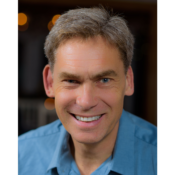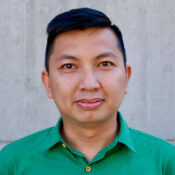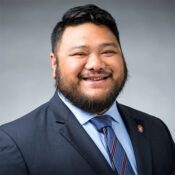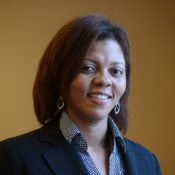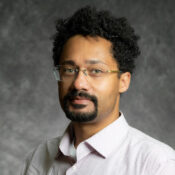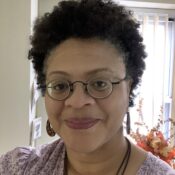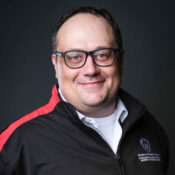Using Data to Inform Our Decisions: The 2021 Campus Climate Survey Task Force
Day 2: November 15, 2022 | 11:30 a.m. – 12:15 p.m., Varsity Hall
Session Video
Session Materials
- Presentation: Key Findings: 2021 Student Campus Climate Survey (PDF)
- Video: Key Findings: 2021 Student Campus Climate Survey
- UW–Madison Student Campus Climate Survey 2021
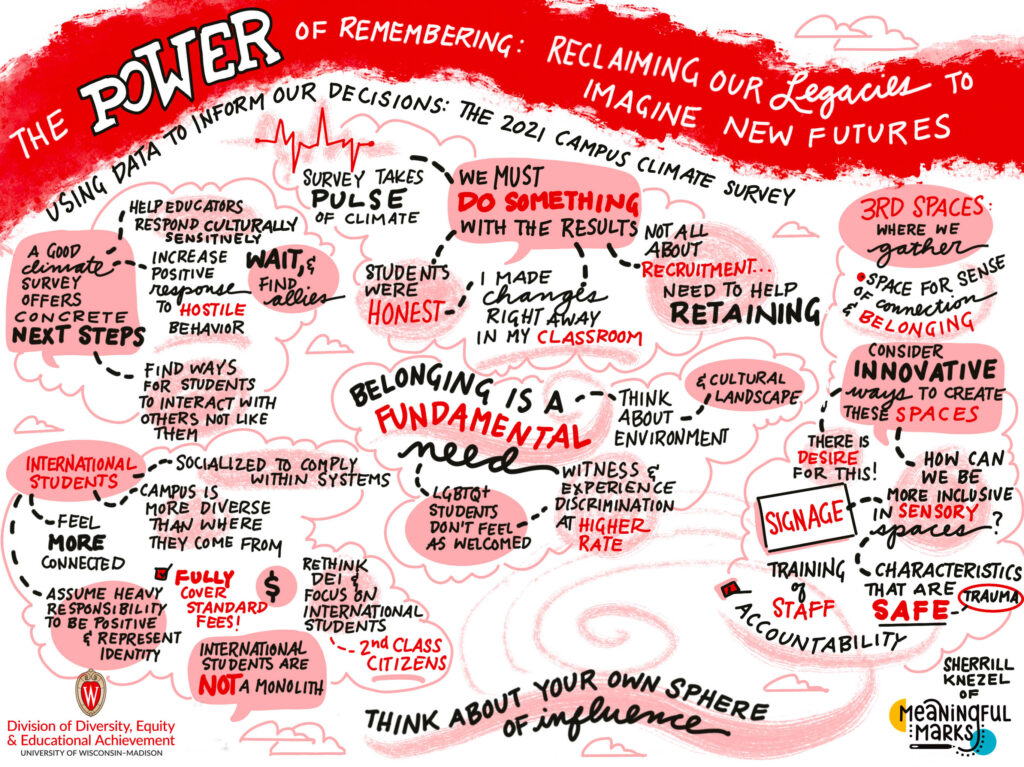
Session Description
UW–Madison launched the second iteration of the student Campus Climate Survey in 2021, which sought to understand students’ experiences with and perceptions of campus climate and diversity, including how people of different backgrounds and identities experience life at UW–Madison. Though the 2021 survey data was generally comparable to the 2016 data, the university found some noteworthy differences. In this session, members of the Campus Climate Survey Task Force will give an overview of the 2021 survey findings and comment on them through the lens of their role at the university.
Speakers
Markus Brauer
Markus Brauer, Ph.D., is a UW–Madison professor of psychology and director of the Brauer Group Lab. The Brauer Group is a social psychology research laboratory that aims to understand how people’s thought processes, perceptions of others, and behaviors are affected by being members of a social group/category (e.g., African Americans, gender/sexual minorities, managers). Professor Brauer earned his Ph.D. at the University of Colorado at Boulder. He was an assistant professor in the Psychology Department at the University of Konstanz, Germany, and later joined the French Centre National de la Recherche Scientifique. His research areas include group and inter-group processes, and he has authored more than 100 articles and chapters.
Omar Dumdum
Omar O. Dumdum is a doctoral candidate in mass communication at UW–Madison double-minoring in political science and global studies. His research investigates the relationship between the news media and understudied elites in political communication, such as international organizations, police and the military, political clans, and other privileged groups that influence/are influenced by the press, with a focus on the Philippines.
Gabe Javier
Gabe Javier is the associate vice chancellor for student affairs in the area of identity and inclusion at UW–Madison, where he leads diversity, equity and inclusion efforts across Student Affairs. He oversees UW’s Multicultural Student Center, the Gender and Sexuality Campus Center, International Student Services, the McBurney Disability Resource Center, and University Veteran Services. Javier arrived at UW in 2011 as assistant dean of students and director of the Lesbian, Gay, Bisexual and Transgender Campus Center (now called the Gender and Sexuality Campus Center). Originally from St. Louis, Javier earned a bachelor’s degree in communication and English from Rockhurst University in Kansas City and a master’s degree in higher education administration from the University of Michigan.
Tawandra Rowell-Cunsolo
Tawandra Rowell-Cunsolo, Ph.D., is an assistant professor in the UW School of Social Work and a faculty affiliate with the UW Institute for Research on Poverty. Her research examines the intersection of the criminal justice system and health outcomes, specifically examining ways incarceration affects the health of vulnerable communities, especially in the areas of HIV risk behaviors and substance use. Dr. Rowell-Cunsolo’s research has been funded by the National Institutes of Health, the Robert Wood Johnson Foundation, and Columbia University. Her long-term goal is to develop sustainable evidence-based interventions that address the intersection of health and justice. She earned her Ph.D. from the University of Pennsylvania and her master’s from Rutgers University.
Warren Scherer
Warren “War” Scherer, M.P.H., is an assistant dean of students and director of the Gender and Sexuality Campus Center at UW–Madison. Before joining UW–Madison, Scherer worked at the UW–Milwaukee LGBT+ Resource Center and at Project Q, the Milwaukee LGBT Community Center’s youth program. Per also served for four years on the board of the Consortium of Higher Education LGBT Resource Professionals, including two as co-chair. Scherer earned per bachelor’s degree and Master of Public Health from UW–Milwaukee.
Nola Walker
Nola Walker is a member of UW–Madison’s Leadership Institute 2022 cohort, UW’s Sustainability Advisory Council, the Campus Climate Survey Task Force and an incoming Social Education Advisory member of the Wisconsin Union Board. Walker served as a data steward during the university’s first STAR Sustainability Audit, was appointed evaluator for the Critical Compensation Evaluation working group, and is a survey subject matter specialist for UW’s RFP survey software. Walker has a background in diversity, equity, accessibility and inclusion within the context of federal, state and higher education compliance and evaluation. Walker serves as Coordinator for Assessment & Evaluation services for UW’s General Library System, and is a member of the Association of College & Research Libraries (ACRL) Values Task Force, the Assessment Proficiencies and Inclusion Writing Team, and the Libraries Assessment Conference 2022 Steering Committee for the Association of Research Libraries (ARL). In addition, Walker is a member and former chair of the UW Arboretum’s Board of Visitors and served on the Milwaukee Evaluation Board, a social justice affiliate of the American Evaluation Association. Walker earned her bachelor’s and master’s degrees and graduate certificates from UW–Madison. She is a certified facilitator, professional trainer, mindful compassion educator, and former environmental justice faculty with Edgewood College. She remains engaged in inclusive environmental initiatives.
James Yonker
James Yonker, Ph.D., M.P.H., serves as the director of the Office of Strategic Diversity Planning and Research for the Division of Diversity, Equity & Educational Achievement, where he leads data analytics and equity, diversity and inclusion research for the division, as well as some university-wide diversity projects. Dr. Yonker is a scholar of health and well-being whose work focuses on how to measure and improve the social climate in higher education. He is an expert in survey research, methodology and statistical analysis and has published in a variety of disciplines, including demography and population studies, sociology, public health, medicine and social work. He earned his Ph.D. in sociology, master of public health and bachelor’s degrees in psychology, sociology and statistics from UW–Madison.
